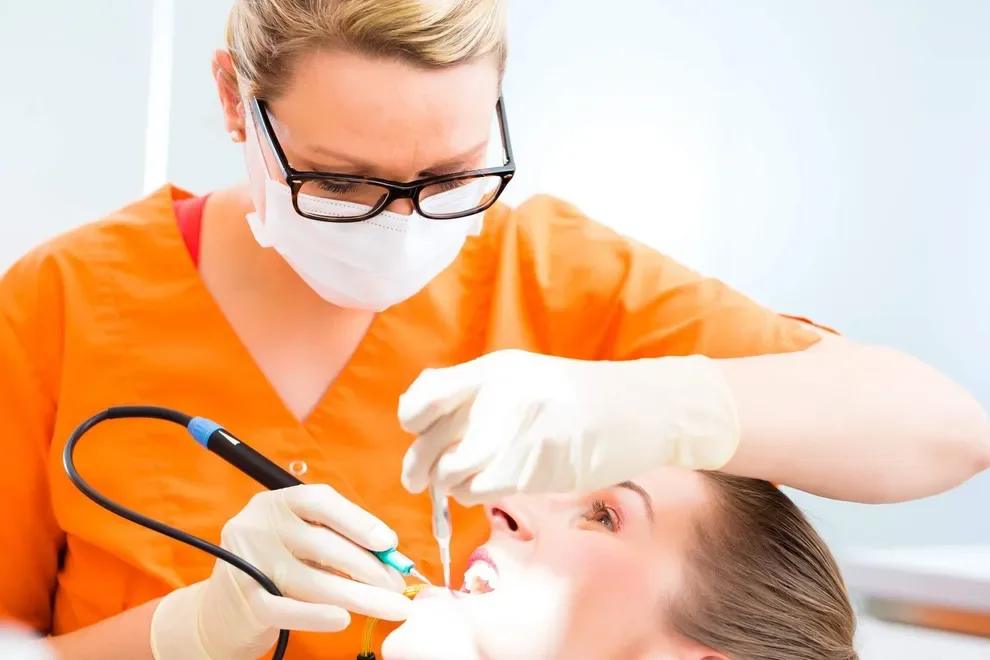When You Can Resume Eating After a Root Canal

Table of Contents
- Eating Timeline
- Factors
- When to Contact Your Dentist
- References
For a few hours after a root canal, your mouth will be numb. You should wait to eat or drink anything until that numbness wears off.
A root canal can alleviate tooth pain caused by infection in the pulp (middle) of your tooth. Your mouth is likely to be sore for a few days after a root canal, but it will usually be mostly healed and ready for crown placement within a week of the procedure.
After the numbness wears off following the procedure, start with soft foods. Avoid chewing on the tooth the root canal was performed on until your permanent crown is placed — usually within a week or two. Taking care of your teeth and body during the healing process can speed up your recovery timeline.
If you experience significant pain beyond a few days after your root canal, reach out to your dentist or endodontist.
Timeline for Eating After a Root Canal
The timeline for eating and what to eat when following a root canal can look like this:
Refrain from eating or drinking anything.
During a root canal procedure, the dentist or endodontist will numb your mouth. This can take two to four hours to wear off. It is recommended to wait to eat until it does. If you try to eat when things are still numb, you could bite your inner cheek or tongue.
Stick to soft foods.
Foods that do not require much chewing, such as eggs, applesauce, yogurt, and fish can be good for the first few days after your root canal. Your tooth can also be extra sensitive, so avoid hot foods as well.
Avoid chewing on or with the affected tooth.
After a root canal, the dentist will place a temporary crown on your tooth. Up until the permanent crown is placed (usually a week to two weeks after the root canal), try to avoid chewing with that tooth.
Return to normal eating.
Once the crown has been placed, your tooth is mostly healed from the root canal, and your pain and sensitivity should be minimized. At this point, you can eat normally again.
Factors That Impact the Timeline
Keeping up with good oral hygiene following your root canal can help to speed up your recovery and get you back to eating your normal diet more quickly. Brush your teeth regularly. You may wish to use a soft-bristled toothbrush to ease the pain and sensitivity at first. Remember to floss daily.
Prescription pain medications can be prescribed to manage pain for a few days after your root canal. A side effect of painkillers is that they may upset your stomach. Pay attention to the instructions with the medication, and avoid foods that can further increase nausea.
When to Contact Your Dentist
Tooth sensitivity and pain associated with a root canal should mostly dissipate within a few days after the procedure. If things worsen or do not ease within the first week, it is time to contact your dentist to see if there could be an issue.
The following reasons are also cause for concern and should be checked out by your dentist:
Prior symptoms, from before the root canal, reappearing
Swelling that is noticeable either inside or outside your mouth
Temporary crown falling out
An allergic reaction that causes itching or hives
An uneven feeling when you bite down
Most of the time, a root canal is successful in reducing tooth pain within a few days. You should be able to return to your normal activities relatively quickly.
